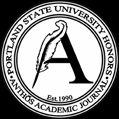Subjects
Plant Sciences, Molecular microbiology
Abstract
Plants respond with a sink stimulation of photosynthesis when colonized by bacterial and fungal mutualists, which compensates for costs of carbohydrate allocation to the microbes. Problems may arise when light is limited and plants cannot increase photosynthesis. We hypothesize that under such conditions the costs for maintaining the mutualism outweigh the benefits, which ultimately turns the beneficial microbes into parasites exploiting resources and reducing host fitness. We study these plant-‐microbe interactions under different light availabilities using lima bean plants, rhizobia (nitrogen-‐fixing bacteria), and mycorrhizal fungi. In our study, we apply two levels of light (full light and light intensity reduced by 75%) and four levels of microbial inoculation (sterile soil, rhizobia, mycorrhiza, and rhizobia x mycorrhiza). Fitness-‐relevant plant parameters will be measured including plant vegetative growth as well as flower and seed production. Our study will provide first insights into potential shifts in functional interactions between plants and plant-‐associated microbes under light limitation.
Creative Commons License

This work is licensed under a Creative Commons Attribution-NonCommercial-Share Alike 4.0 International License.
Persistent Identifier
http://archives.pdx.edu/ds/psu/12634
Recommended Citation
Millar, Jess A. (2012) "Effects of Light Limitation on Plant-Rhizobia and Plant-Mycorrhiza Interactions," Anthós: Vol. 4: Iss. 2, Article 2.
